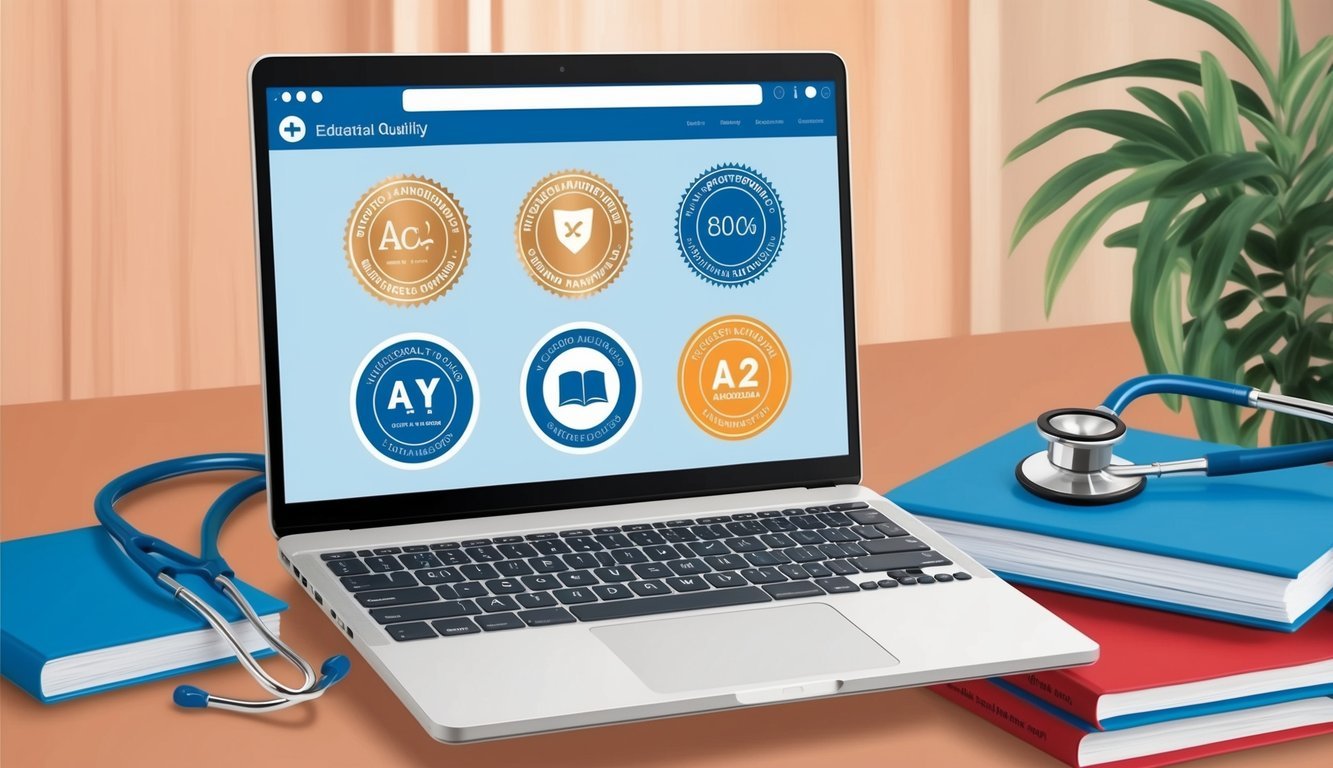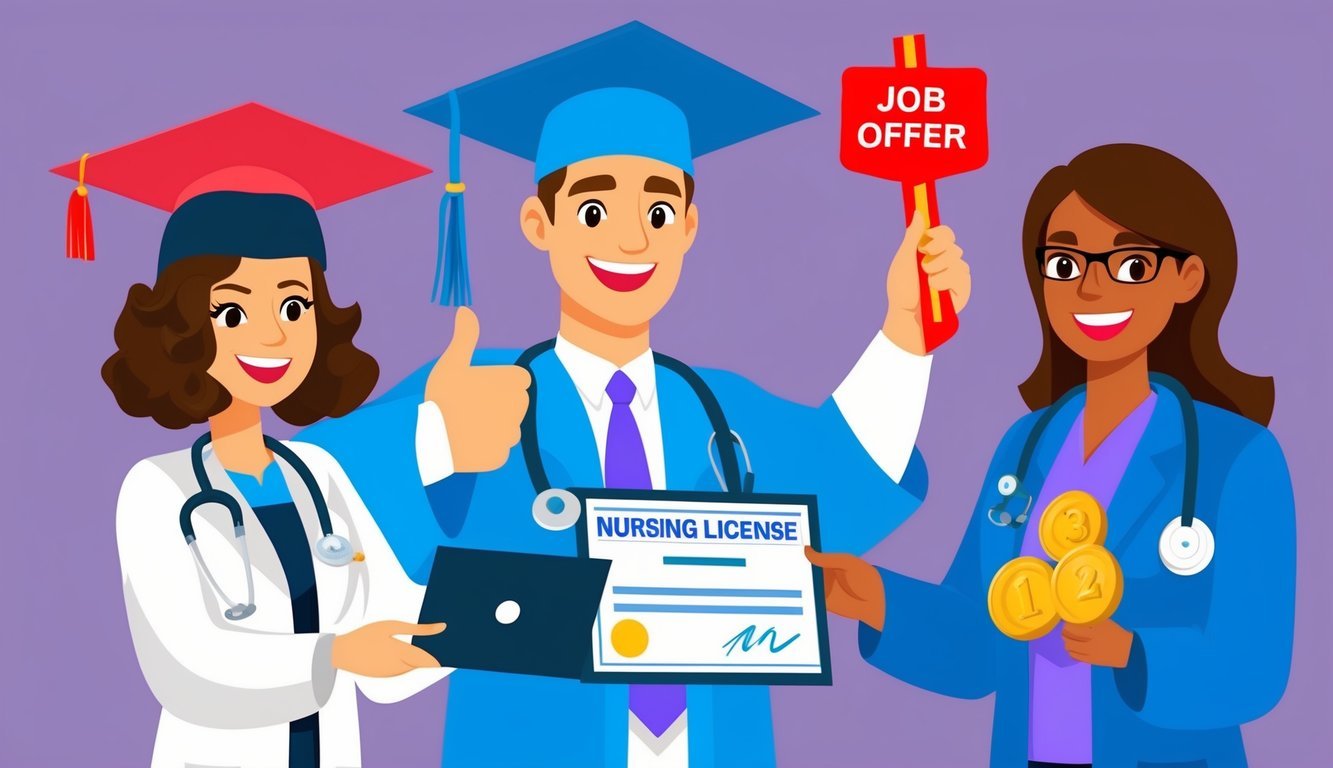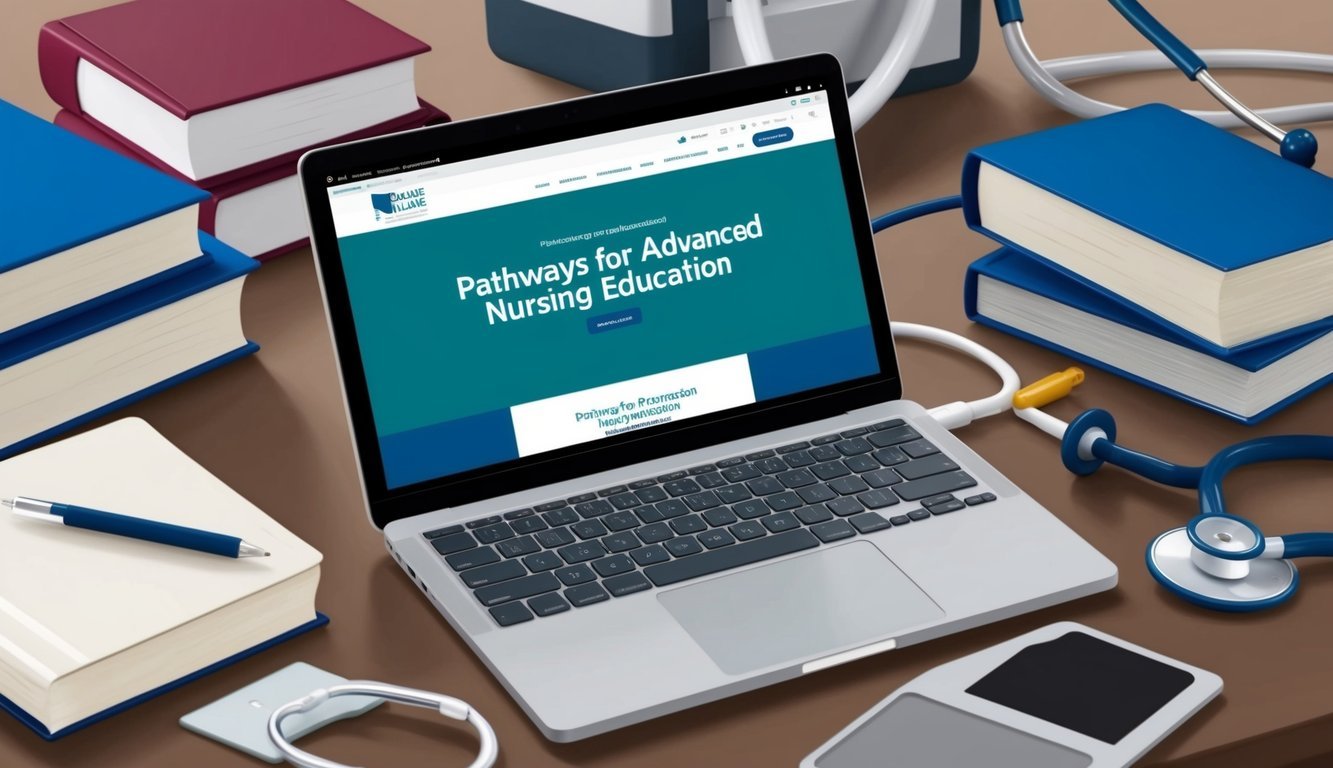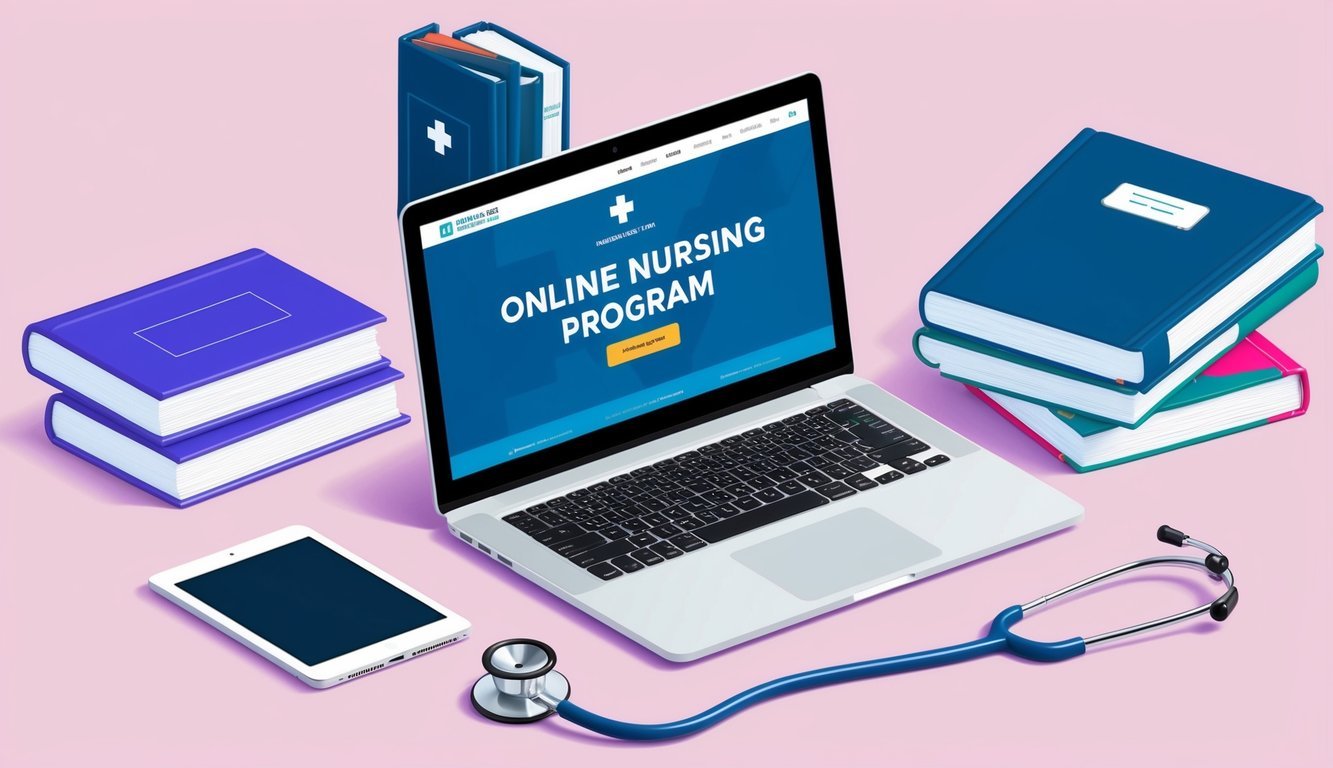Online associate nursing programs provide an accessible pathway for aspiring nurses to enter the healthcare field.
These programs typically combine theoretical knowledge with practical skills, preparing you for the demands of nursing roles upon graduation.
Many of these programs can be completed entirely online, offering flexibility for those balancing work, family, and education.
As you consider this career path, it’s essential to evaluate the various online associate degree in nursing (ADN) options available to you.
Factors such as program accreditation, duration, and clinical requirements play a crucial role in your decision-making.
With the growing need for registered nurses, investing in an online ADN program positions you well for a rewarding career in healthcare.
For those interested in exploring specific programs, you can find valuable information and comparisons through resources like Best Health Degrees and OnlineU.
These platforms can help you navigate your choices and find the right program that aligns with your goals.
Exploring the Basics of Online Associate Nursing Programs
Online associate nursing programs provide a pathway to becoming a Registered Nurse (RN).
These programs offer the flexibility needed for balancing work and studies while preparing you for a rewarding career in healthcare.
Key Features of ADN Programs:
| Feature | Description |
|---|---|
| Duration | Typically 18-24 months |
| Format | Fully online or hybrid (combination of online and on-campus) |
| Clinical Requirements | In-person clinical experiences at local facilities |
| Accreditation | Must be accredited by a recognized nursing body |
Common Courses in Nursing Curriculum:
In these programs, you will encounter various courses, including:
- Anatomy and Physiology
- Nursing Fundamentals
- Pharmacology
- Mental Health Nursing
- Pediatric Nursing
These courses are designed to equip you with essential skills and knowledge necessary for patient care.
Benefits of Online Learning:
- Flexibility: Study at your own pace and schedule.
- Accessibility: Access course materials anytime, anywhere.
- Cost-Effectiveness: Potential savings on commuting and relocation.
Pursuing an associate degree in nursing can lead to numerous job opportunities in the healthcare field.
Programs such as those offered by Purdue Global and Florida SouthWestern State College ensure a comprehensive education to help you succeed.
Accreditation and Educational Quality

Accreditation is a crucial element of your education in nursing programs.
It ensures that the institution you choose meets specific quality standards, affecting your educational experience and future job opportunities.
Importance of Accreditation
Accreditation signals that a nursing program adheres to the rigorous standards set forth by recognized accrediting bodies.
This recognition is vital for various reasons:
- Quality Assurance: Programs undergo periodic evaluations to maintain educational quality.
- Transfer of Credits: Accredited programs often ease the process of transferring credits between institutions.
- Eligibility for Financial Aid: Many forms of financial aid are available only to students enrolled in accredited programs.
Choosing an accredited online Associate Degree in Nursing (ADN) program means you are more likely to receive a comprehensive education that prepares you for the NCLEX-RN exam and for a successful nursing career.
Accrediting Bodies for Nursing Programs
Various accrediting bodies oversee nursing programs to ensure educational quality.
The most recognized organizations include:
| Accrediting Body | Focus Area |
|---|---|
| ACEN | Nursing education programs in various settings |
| CCNE | Baccalaureate and graduate nursing education |
These bodies evaluate programs based on criteria such as curriculum standards, faculty qualifications, and student outcomes.
If you are considering an online ADN program, be sure to verify its accreditation status through ACEN or CCNE.
Selecting an accredited program not only facilitates your education but also enhances your employability in a highly competitive field.
Clinical Requirements and Online Learning

In an online associate nursing program, understanding the integration of clinical requirements with your online education is crucial.
This section addresses how clinical hours are adapted to online learning, the types of clinical experiences you may encounter, and how to balance your online coursework with practical nursing practice.
Adapting Clinical Hours to Online Education
Many online associate nursing programs require you to complete a specific number of clinical hours.
This is essential for gaining hands-on experience.
Often, schools work with local healthcare facilities to facilitate this process.
You typically arrange your clinical hours around your online coursework.
This flexibility allows you to gain practical experience while studying.
Some programs may offer simulation labs to enhance your skills, especially if you live far from a participating healthcare setting.
Keep in mind that some in-person attendance will be necessary for hands-on skills training.
It’s important to communicate with your program advisor to ensure you meet all clinical hour requirements efficiently.
Types of Clinical Experiences
Clinical experiences in nursing programs are diverse and critical for professional development.
You may find opportunities in various healthcare settings, including hospitals, clinics, and community health organizations.
Key types of clinical experiences include:
- Direct Patient Care: Working under the supervision of licensed nurses to provide patient care.
- Simulation Labs: Engaging in realistic scenarios using mannequins and advanced technology.
- Community Health: Participating in public health initiatives to understand broader healthcare needs.
Each type of experience enhances your practical skills, preparing you for the multifaceted nature of nursing practice.
Ensure that any program you choose offers a comprehensive array of clinical experiences to support your professional growth.
Balancing Online Courses with Clinical Practice
Balancing your online courses with clinical practice requires effective time management.
You should create a weekly schedule that incorporates both your online study commitments and clinical responsibilities.
Consider the following tips:
- Set Clear Goals: Define what you aim to achieve each week in both your coursework and clinical assignments.
- Prioritize Tasks: Identify urgent tasks and allocate time accordingly.
- Utilize Online Resources: Many programs provide online platforms for discussions and assignments, making it easier to manage coursework on the go.
Finding this balance is vital for your success in the nursing field, ensuring that you gain the necessary knowledge while applying it in real-world settings.
Financial Considerations and Support

When pursuing an online associate nursing program, understanding the financial landscape is crucial.
You will encounter various costs associated with tuition and program expenses, but financial aid options can alleviate some of this burden.
Investing in your education not only impacts your finances but also your future earning potential.
Tuition and Program Costs
Tuition rates for online Associate Degree in Nursing (ADN) programs vary widely based on the institution.
Community colleges often offer more affordable tuition compared to private nursing schools.
Below is an example of typical tuition ranges:
| Institution Type | Estimated Tuition Range |
|---|---|
| Community College | $5,000 – $15,000 |
| Private Nursing School | $15,000 – $30,000 |
In addition to tuition, consider program costs such as textbooks, lab fees, and clinical supplies, which can add several hundred to a few thousand dollars to your total expenses.
Available Financial Aid Options
Numerous financial aid options exist to support your nursing education.
Federal and state grants, scholarships, and loans are commonly available.
For example, Illinois residents may explore the PATH grant to help cover specific expenses like books and childcare while enrolled in healthcare programs.
You can research available scholarships specifically for nursing students by visiting platforms like Nurse.org or applying for financial aid through the FAFSA.
Investment in Higher Education
Investing in an online ADN program is beneficial for your long-term career growth.
Graduates with an associate degree in nursing typically have a higher earning potential.
According to the Bureau of Labor Statistics, registered nurses earn a median salary of approximately $75,000 annually.
Furthermore, nursing offers job stability, as the demand for healthcare professionals continues to rise.
Earning your degree can lead to career advancement opportunities.
Thus, the financial investment in your education can yield substantial returns over time.
Licensure and Career Outcomes

Understanding the process of licensure and the potential career outcomes is crucial for aspiring nurses.
This includes preparing for the NCLEX-RN exam, securing a nursing license, and exploring employment opportunities.
Preparing for the NCLEX-RN Exam
To become a Registered Nurse (RN), you must pass the NCLEX-RN exam.
This exam evaluates your knowledge and skills in nursing practice.
Most associate nursing programs incorporate NCLEX preparation into their curriculum.
- Study Materials: Utilize textbooks, online resources, and practice exams.
- Study Groups: Joining peers can enhance understanding and retention.
- Scheduling: Plan your exam date strategically after completing your program.
Make sure to review the NCLEX test plan for specific content areas.
Licensure as a Registered Nurse (RN)
After successfully passing the NCLEX-RN, you can apply for your nursing license.
Each state has specific requirements, usually involving submitting proof of education, exam results, and background checks.
- State Boards: Familiarize yourself with your state’s Board of Nursing website for application processes.
- Licensure Fees: Expect to pay application fees, which vary by state.
- Renewal: Most states require periodic renewal of your nursing license, often needing continuing education credits.
This license enables you to practice as an RN and open doors in various healthcare settings.
Employment Opportunities and Job Placement
Upon obtaining your RN license, multiple career paths await you.
The job placement rate for graduates of online associate nursing programs is often high, given the demand for healthcare professionals.
- Work Settings: Options include hospitals, clinics, and home health care.
- Salary Expectations: The median salary for RNs varies by location and experience. According to the Bureau of Labor Statistics, the annual median wage is around $75,000.
Consider pursuing additional certifications for career advancement, which can lead to specialized roles like nurse practitioner or nurse educator.
For details on job placement rates and salaries, consult resources like the Bureau of Labor Statistics.
This well-rounded approach to licensure and career planning prepares you for success in the nursing field.
Pathways for Advanced Nursing Education

Advancing your nursing education opens doors to new opportunities and specialized roles.
Two significant pathways for growth include RN-to-BSN programs, which elevate your qualifications, and continuing education for professional development, which keeps you informed about emerging practices.
RN-to-BSN and Beyond
Registered nurses with an Associate Degree in Nursing (ADN) who want a Bachelor of Science in Nursing (BSN) can join RN-to-BSN programs.
These programs typically take 1-2 years to complete and focus on expanding your skills in nursing leadership and evidence-based practice.
Online RN-to-BSN programs offer flexibility for working nurses.
They allow you to balance education with job responsibilities.
Accredited programs often include courses in health assessment, community health nursing, and nursing theory, which prepare you for advanced roles.
A Bachelor of Science in Nursing can be a stepping stone to graduate education, such as a Master of Science in Nursing (MSN).
An MSN opens pathways to advanced practice roles like nurse practitioner or clinical nurse specialist.
Continuing Education for Professional Development
Maintaining and enhancing your nursing skills requires continuing education.
It ensures you stay current with trends and changes in healthcare practices, which is vital in a fast-paced field.
Many options exist for professional development, including workshops, online courses, and certifications.
These may cover specialized topics such as:
- Advanced cardiac life support
- Pediatric nursing
- Infection control
Continuing education also helps you meet state licensure requirements.
Regularly updating your knowledge through these programs positions you as a skilled professional.
This enhances your ability to provide quality care and contribute to nursing leadership initiatives.

